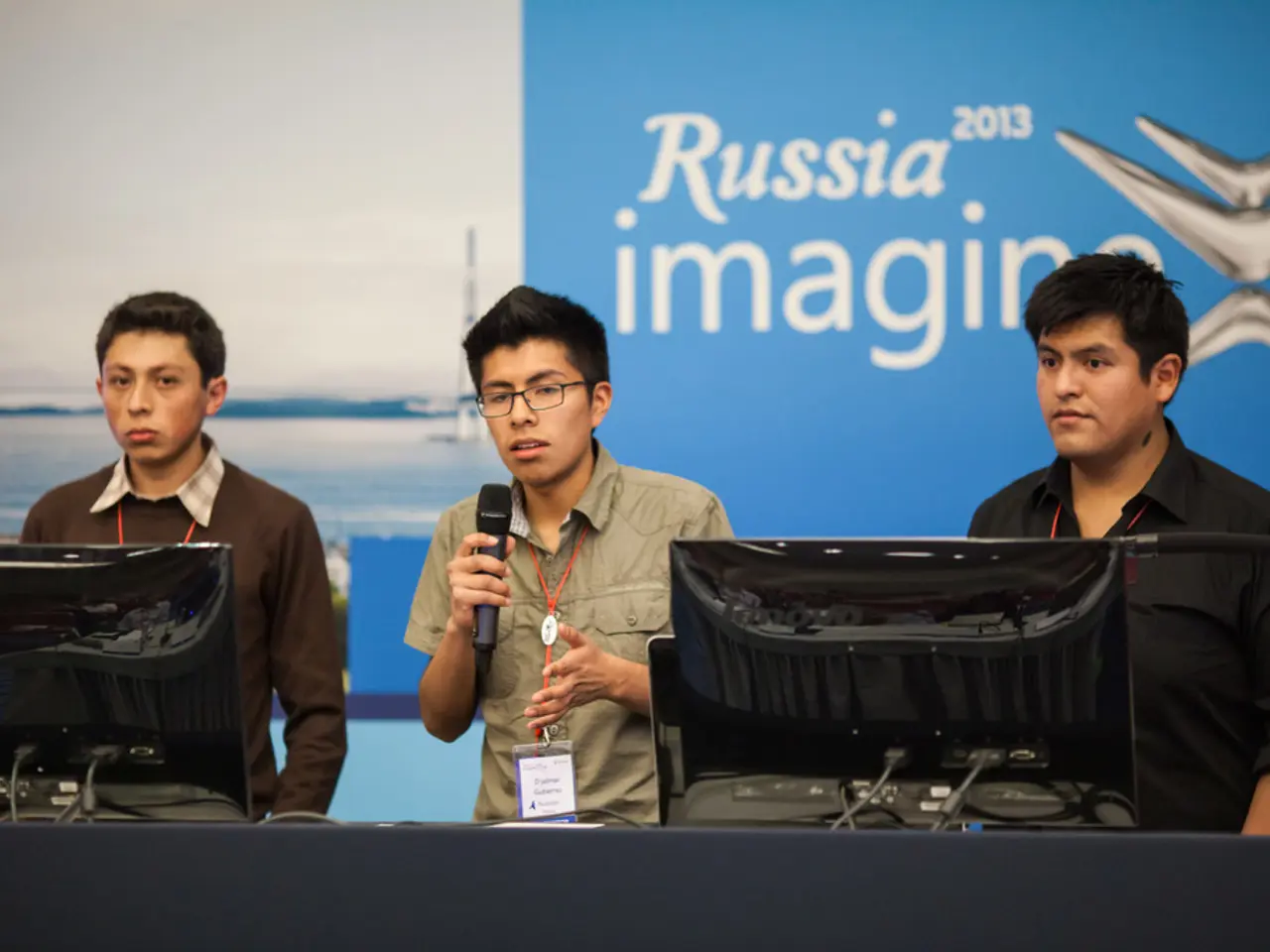Europeans apprehensive about fading into historical insignificance as Putin negotiates potential pact with Trump
In a recent development, Russian President Vladimir Putin has made specific demands regarding Ukraine, as reported by the Institute for the Study of War (ISW) and other sources. Putin seeks full control over the Donetsk Oblast and Luhansk regions (Donbas), and insists that any peace agreement must address the so-called “root causes” of the war, which are defined by the Kremlin as NATO's eastward expansion and Ukraine's alleged discrimination against Russian speakers [1][2][4].
At the Alaska summit with US President Donald Trump, Putin reportedly demanded these territorial concessions in exchange for peace, offering to relinquish control in other occupied Ukrainian territories if allowed to keep Donetsk and Luhansk [2][4]. Trump has expressed support for this proposal, planning further discussions with Ukrainian President Zelenskyy in Washington [2][4].
However, Ukraine, led by Zelenskyy, has firmly rejected any formal ceding of territory to Russia, especially the Donbas region, calling such concessions unconstitutional and warning that surrendering these areas would enable further Russian aggression [2][4]. Zelenskyy remains committed to regaining control over the currently occupied parts of Donetsk.
The European Union and other Western leaders have been skeptical and critical of Putin's demands. European leaders emphasize that any peace agreement must include ironclad security guarantees for Ukraine and respect Ukraine’s sovereignty, leaving territorial decisions up to Ukraine itself [3]. The European response reflects concerns that yielding to Putin’s territorial demands would reward aggression and undermine Ukrainian sovereignty.
Putin’s demands are largely seen as maximalist and uncompromising, anchored in territorial control and recognition of Kremlin-defined “root causes,” while Ukraine and the EU insist on sovereignty and security guarantees [1][2][3][4]. The US stance under Trump shows some openness to Putin’s proposal but faces opposition from Ukraine and European allies [1][2][3][4].
The potential outcome of the summit between Putin and Trump is reminiscent of the Munich Agreement between British Prime Minister Neville Chamberlain and Adolf Hitler in 1938, where territorial claims were made and later invaded. However, EU foreign policy chief Kaja Kallas stated that any deal between the US and Russia must include Ukraine and the EU, as it is a matter of Ukraine's and the whole of Europe's security [5].
In the meantime, the Europeans are apprehensive about the potential outcome of the summit, fearing that Putin will divide the transatlantic alliance and get everything he wants in Ukraine. European diplomats are calling for "robust and credible security guarantees" to enable Ukraine to defend its sovereignty and territorial integrity [3]. It remains uncertain whether Putin will demand control of the Ukrainian regions Kherson and Zaporizhzhia, whose regional capitals are still in Ukrainian hands, or require Ukraine to recognize Moscow's sovereignty over Crimea [1].
As the situation unfolds, it is crucial for all parties involved to prioritize diplomacy and respect for international law to ensure peace and stability in the region.
References: [1] https://www.bbc.com/news/world-europe-55624213 [2] https://www.reuters.com/world/europe/putin-trump-to-meet-friday-alaska-summit-us-officials-say-2021-05-30/ [3] https://www.reuters.com/world/europe/european-leaders-wary-of-russian-demands-on-ukraine-ahead-putin-trump-summit-2021-05-31/ [4] https://www.reuters.com/world/europe/trump-backs-moscows-control-donbas-and-freeze-front-lines-elsewhere-sources-2021-05-31/ [5] https://www.politico.eu/article/eu-ukraine-putin-trump-summit-kallas-kallas-kallas-kallas-kallas-kallas-kallas-kallas-kallas-kallas-kallas-kallas-kallas-kallas-kallas-kallas-kallas-kallas-kallas-kallas-kallas-kallas-kallas-kallas-kallas-kallas-kallas-kallas-kallas-kallas-kallas-kallas-kallas-kallas-kallas-kallas-kallas-kallas-kallas-kallas-kallas-kallas-kallas-kallas-kallas-kallas-kallas-kallas-kallas-kallas-kallas-kallas-kallas-kallas-kallas-kallas-kallas-kallas-kallas-kallas-kallas-kallas-kallas-kallas-kallas-kallas-kallas
- The ongoing dispute between Russia and Ukraine over Donetsk Oblast and Luhansk regions (Donbas) is a part of the larger war-and-conflicts discourse in the world, with Europe playing a significant role in policy-and-legislation discussions regarding the issue.
- In response to Russian President Vladimir Putin's demands, European leaders advocate for ironclad security guarantees for Ukraine to safeguard its sovereignty, actively discrediting any territorial concessions as a reward for aggression.
- The general-news landscape is filled with speculation about Putin's potential future demands, including control over Ukrainian regions such as Kherson and Zaporizhzhia, which could further strain the already tense relations between Russia and Europe.








